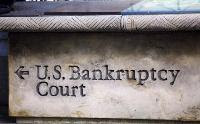Chapter 7 Debtors Can Now Strip Off A Wholly Unsecured Lien
Published on by: Ian M. Falcone
 Last month the 11th Circuit Court of Appeals decided that a Chapter 7 debtor can strip off a wholly unsecured second lien. See In McNeal v. GMAC Mortgage, LLC, et al, No. 11-11352 (11th Cir. May 11, 2012)
Last month the 11th Circuit Court of Appeals decided that a Chapter 7 debtor can strip off a wholly unsecured second lien. See In McNeal v. GMAC Mortgage, LLC, et al, No. 11-11352 (11th Cir. May 11, 2012)
In Dewsnup v. Timm, 502 U.S. 410 (1992), the Supreme Court had rejected a Chapter 7 debtor’s argument to allow for the “strip down” of an undersecured lien. “The vast majority of courts have concluded that Dewsnup’s reasoning for not permitting a “strip down” of an undersecured lien in chapter 7 applies likewise to a chapter 7 debtor’s attempt to “strip off” a wholly unsecured lien. Talbert v. City Mortgage Services 344 F.3d 555 (6th Cir. 2003); Ryan v. Homecomings Fin. Network, 253 F.3d 778 (4th Cir. 2001); Laskin v. First National Bank of Keystone (In re Laskin), 222 B.R. 872 (B.A.P. 9th Cir. 1998); In re Caliguri, 2010 WL 1027411 (Bankr. E.D.N.Y. Mar. 17, 2010); In re Grano, 422 B.R. 401 (Bankr. W.D.N.Y. 2010); In re Arrieta, 2009 WL 1789576 (Bankr. N.D. Ill. 2009). Contra, In re Lavelle, 2009 WL 4043089 (Bankr. E.D.N.Y. Nov. 25, 2009); Howard v. National Westminster Bank, U.S.A. (In re Howard), 184 B.R. 644 (Bankr. E.D.N.Y. 1995).”
In the McNeal case, the Chapter 7 debtor alleged that her home was worth less than the amount of the first mortgage. Debtor argued that § §506(a) and (d) required that the second mortgage, being wholly unsecured, should be determined to be void and the lien stripped off completely. Judge Bonapfel of the Bankruptcy Court of the Northern District of Georgia, Atlanta Division, disagreed, and ruled that the reasoning of Dewsnup applied and that a wholly unsecured lien could not be “stripped off” in a Chapter 7 case. The district court then affirmed. The National Association of Consumer Bankruptcy Attorneys (NACBA) filed an amicus brief with the Court. The Eleventh Circuit then reversed the decison.
To determine whether such an allowed -- but wholly unsecured -- claim is voidable, we must then look to section 506(d), which provides that “[t]o the extent that a lien secures a claim against a debtor that is not an allowed secured claim, such lien is void.” See 11 U.S.C. § 506(d). Several courts have determined that the United States Supreme Court’s decision in Dewsnup v. Timm, 112 S. Ct. 773 (1992) -- which concluded that a Chapter 7 debtor could not “strip down” a partially secured lien under section 506(d) -- also precludes a Chapter 7 debtor from “stripping off” a wholly unsecured junior lien such as the lien at issue in this appeal. See, e.g., Ryan v. Homecomings Fin. Network, 253 F.3d 778 (4th Cir. 2001); Talbert v. City Mortgage Services., 344 F.3d 555 (6th Cir. 2003); Laskin v. First National Bank of Keystone, 222 B.R. 872 (B.A.P. 9th Cir. 1998). But the present controlling precedent in the Eleventh Circuit remains our decision in Folendore v. United States Small Business Administration, 862 F.2d 1537 (11th Cir. 1989). In Folendore, we concluded that an allowed claim that was wholly unsecured -- just as GMAC’s claim is here -- was voidable under the plain language of section 506(d). 862 F.2d at 1538-39.
The Court then explained although several Courts had treated Folendore as having been abrogated by Dewsnup, departure from a prior panel’s ruling was only appropriate only when an intervening Supreme Court decision is “clearly on point.”
Although the Supreme Court’s reasoning in Dewsnup seems to reject the plain language analysis that we used in Folendore, “‘[t]here is, of course, an important difference between the holding in a case and the reasoning that supports that holding.’” Atlanta Sounding Co., Inc., 496 F.3d at 1284 (citing Crawford-El v. Britton, 118 S. Ct. 1584, 1590 (1998)). “[T]hat the reasoning of an intervening high court decision is at odds with that of our prior decision is no basis for a panel to depart from our prior decision.” Id. “As we have stated, ‘[o]bedience to a Supreme Court decision is one thing, extrapolating from its implications a holding on an issue that was not before that Court in order to upend settled circuit law is another thing.” Id. In fact, the Supreme Court -- noting the ambiguities in the bankruptcy code and the “the difficulty of interpreting the statute in a single opinion that would apply to all possible fact situations” -- limited its Dewsnup decision expressly to the precise issue raised by the facts of the case. 112 S. Ct. at 778.
The Court reversed the District Court's opinion. Thus, at least in the 11th Circuit, a wholly unsecured lien may now be stripped in a Chapter 7 case.

No comments:
Post a Comment